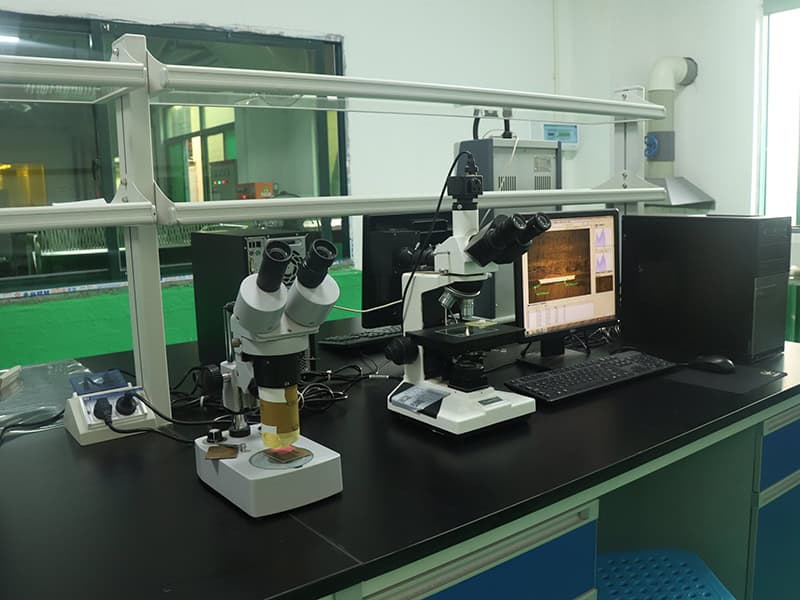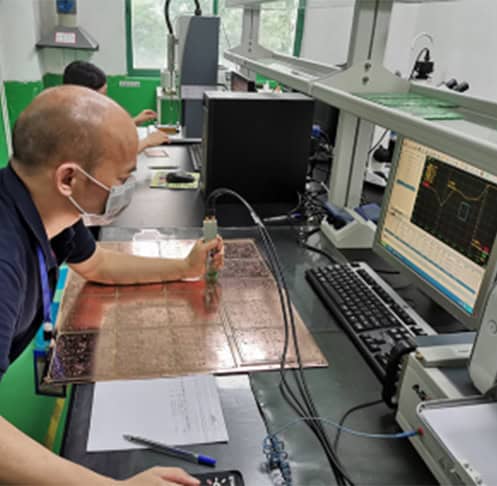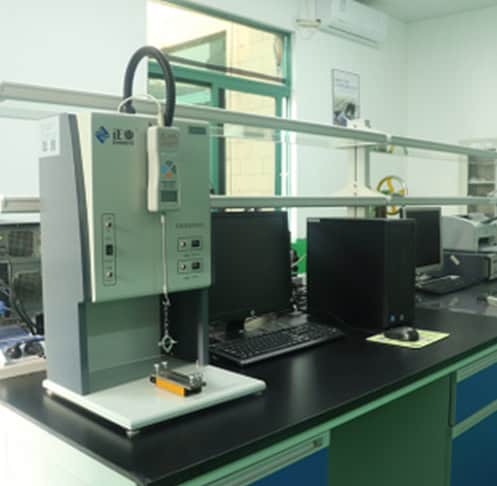Laboratory
We invest in our lab and your product quality
LHD Technology strictly controls quality in every process of PCB production. Our lab has advanced equipment to better design and control product innovation and quality.

Process development and optimization
Environmental compliance
Customer Support

Material and Product Testing
Material Analysis: The laboratory is responsible for analyzing and testing the materials used in the PCB manufacturing process to ensure that they meet design and environmental standards. This includes composition and performance testing of substrate materials, solder, solder mask, etc.
Failure Analysis: Through various testing methods (such as section analysis, scanning electron microscope observation, etc.), the laboratory can identify and analyze the failure modes of PCBs and their components. This helps to find the root cause of the problem and improve the design or manufacturing process.
Quality Control
Process Monitoring: The laboratory ensures that every link in the production process meets quality standards through regular sampling and testing. This includes evaluation of welding quality, electrical performance, mechanical strength, etc.
Reliability Testing: Environmental and mechanical stress tests such as temperature cycling, vibration shock, salt spray testing, etc. are performed to evaluate the reliability of PCBs under different conditions.



